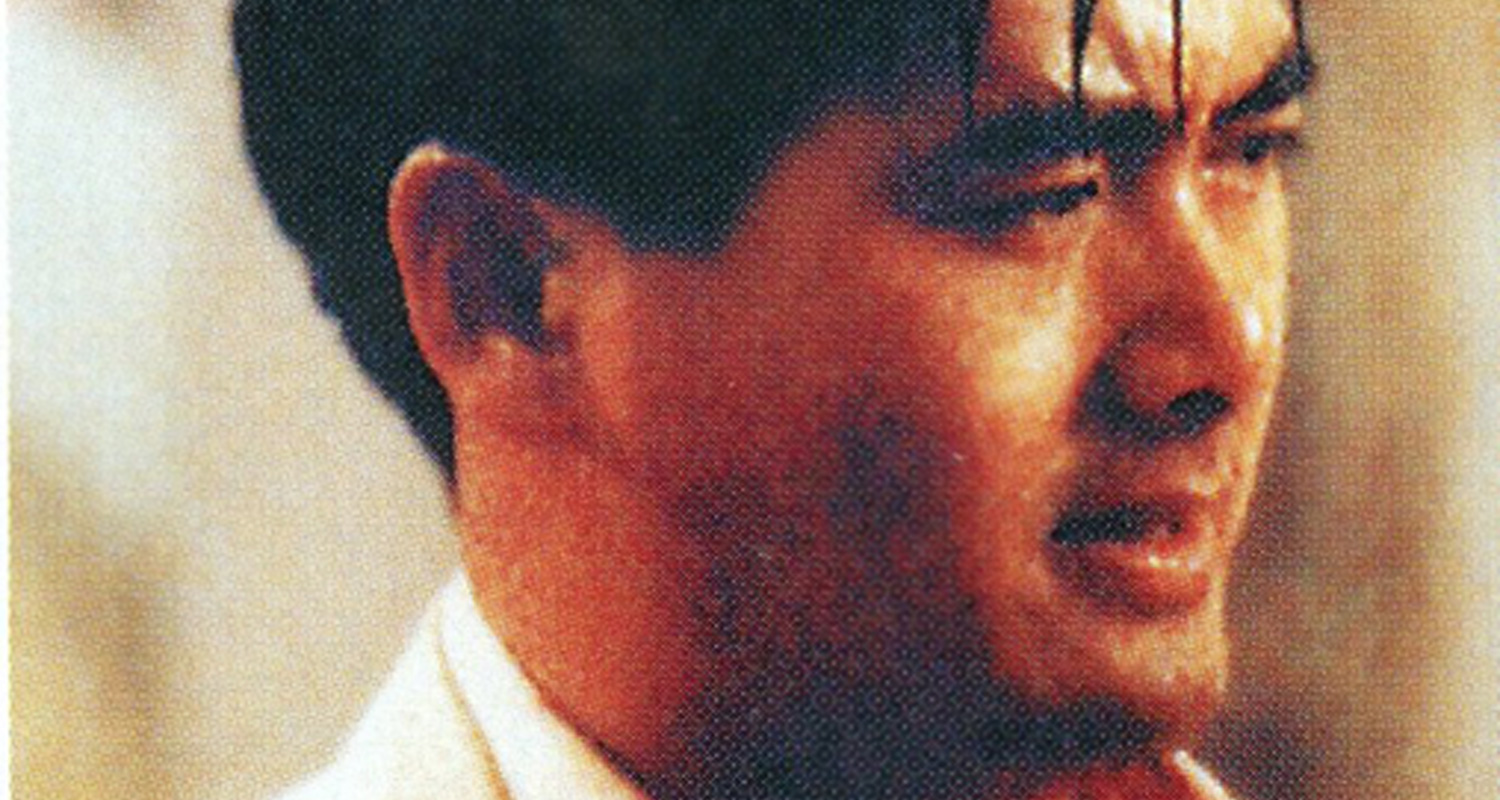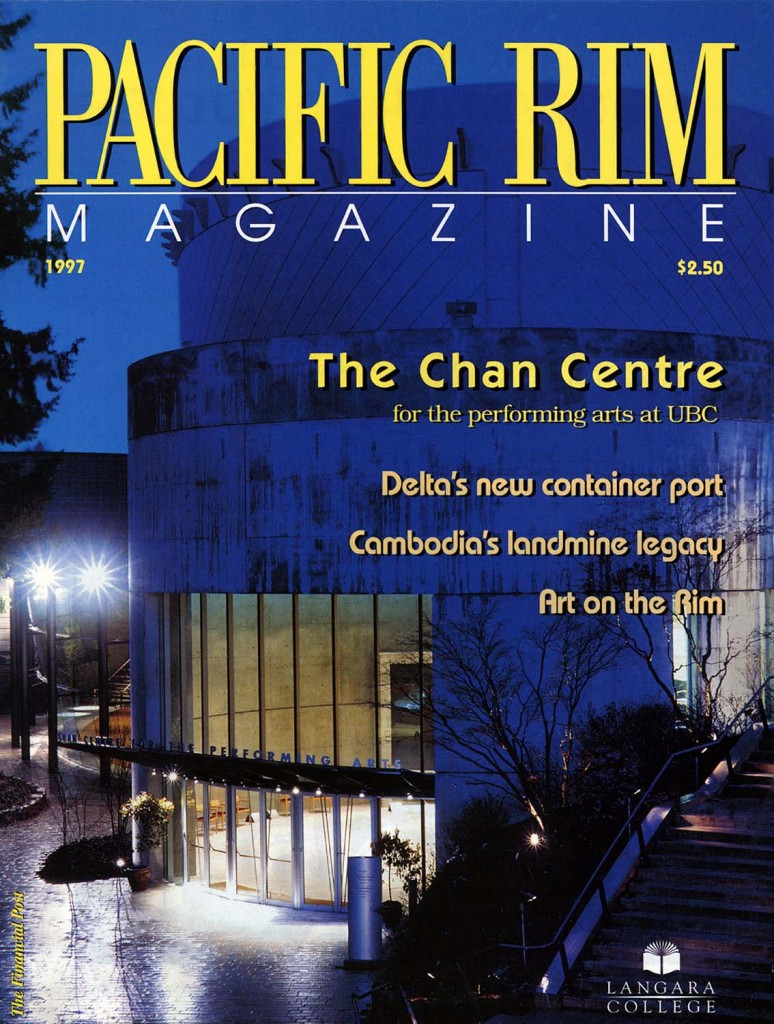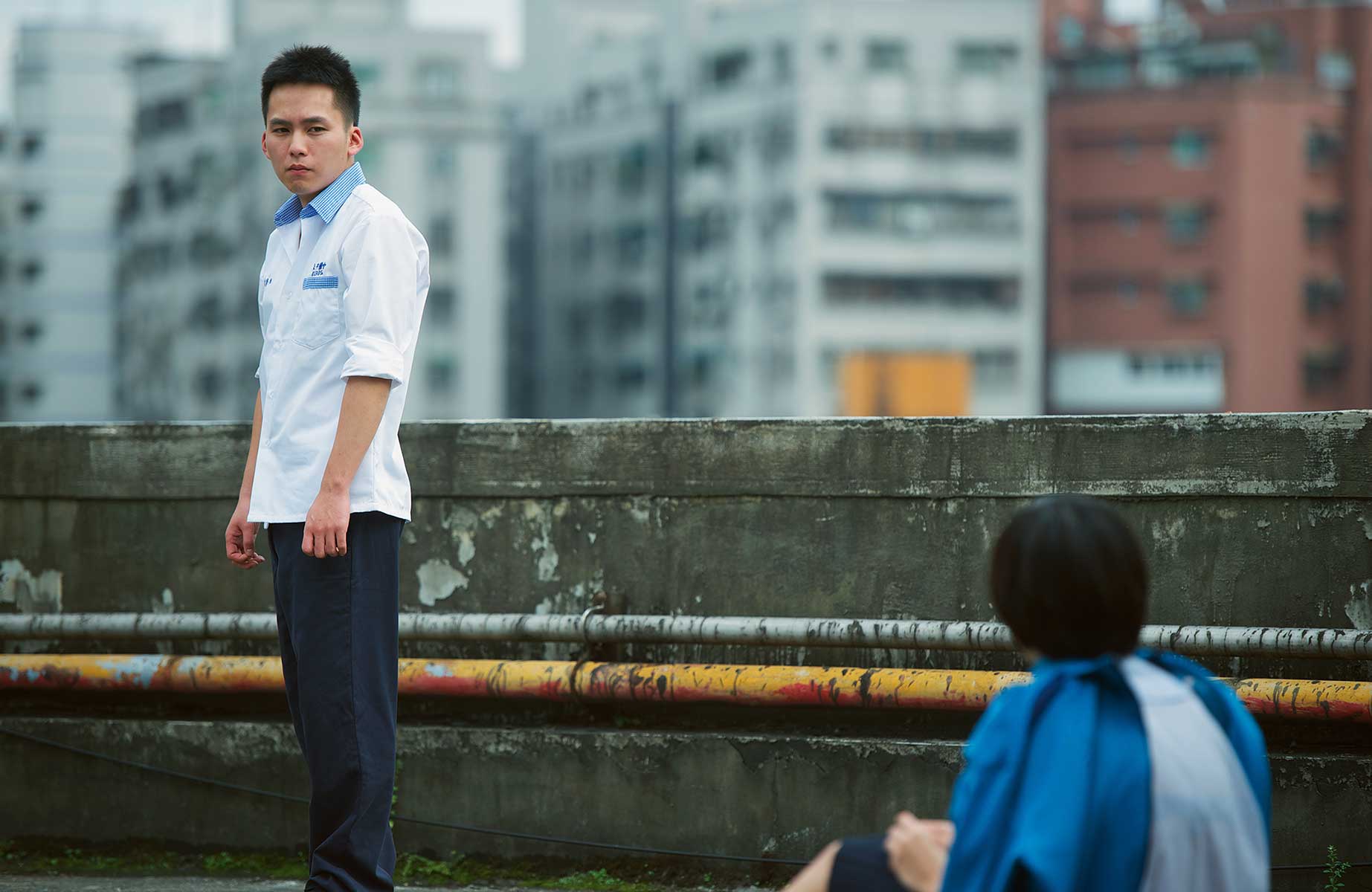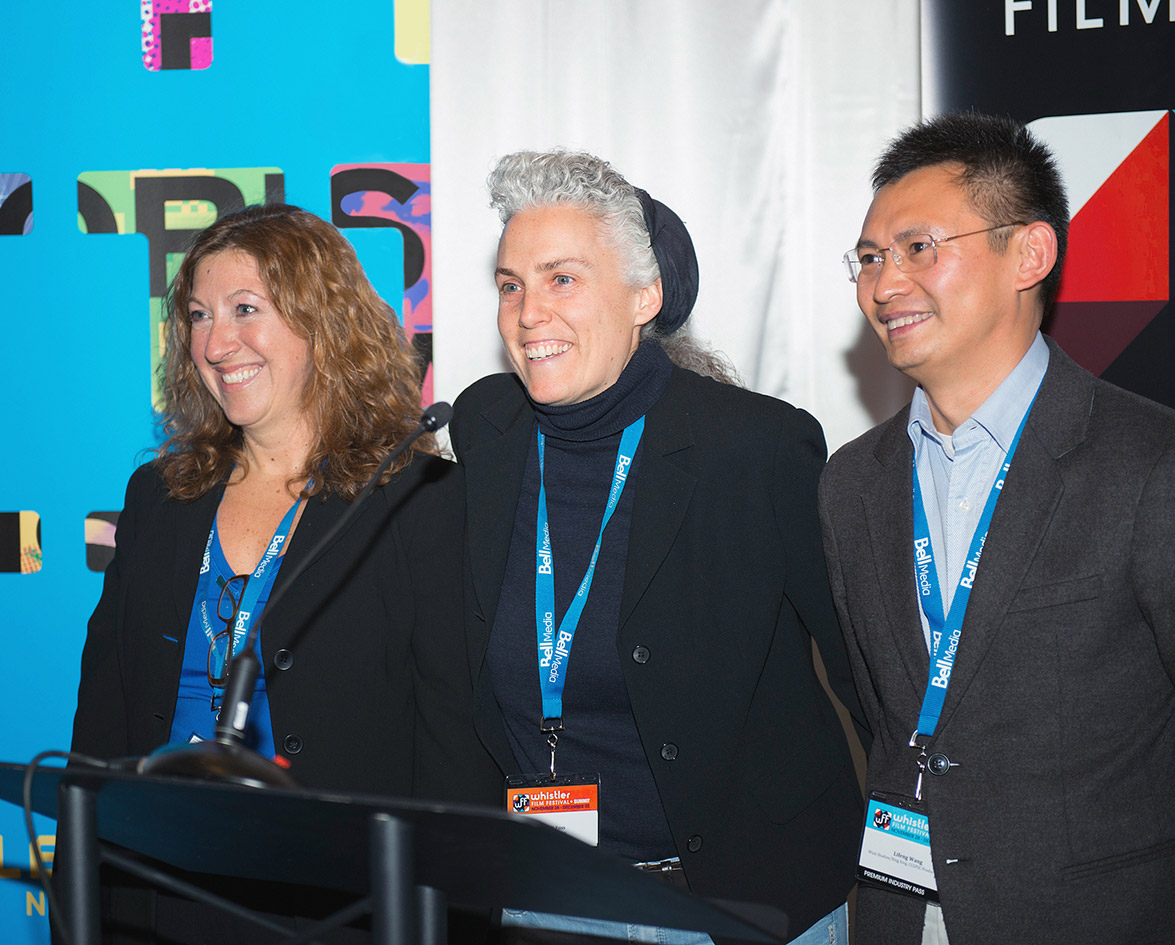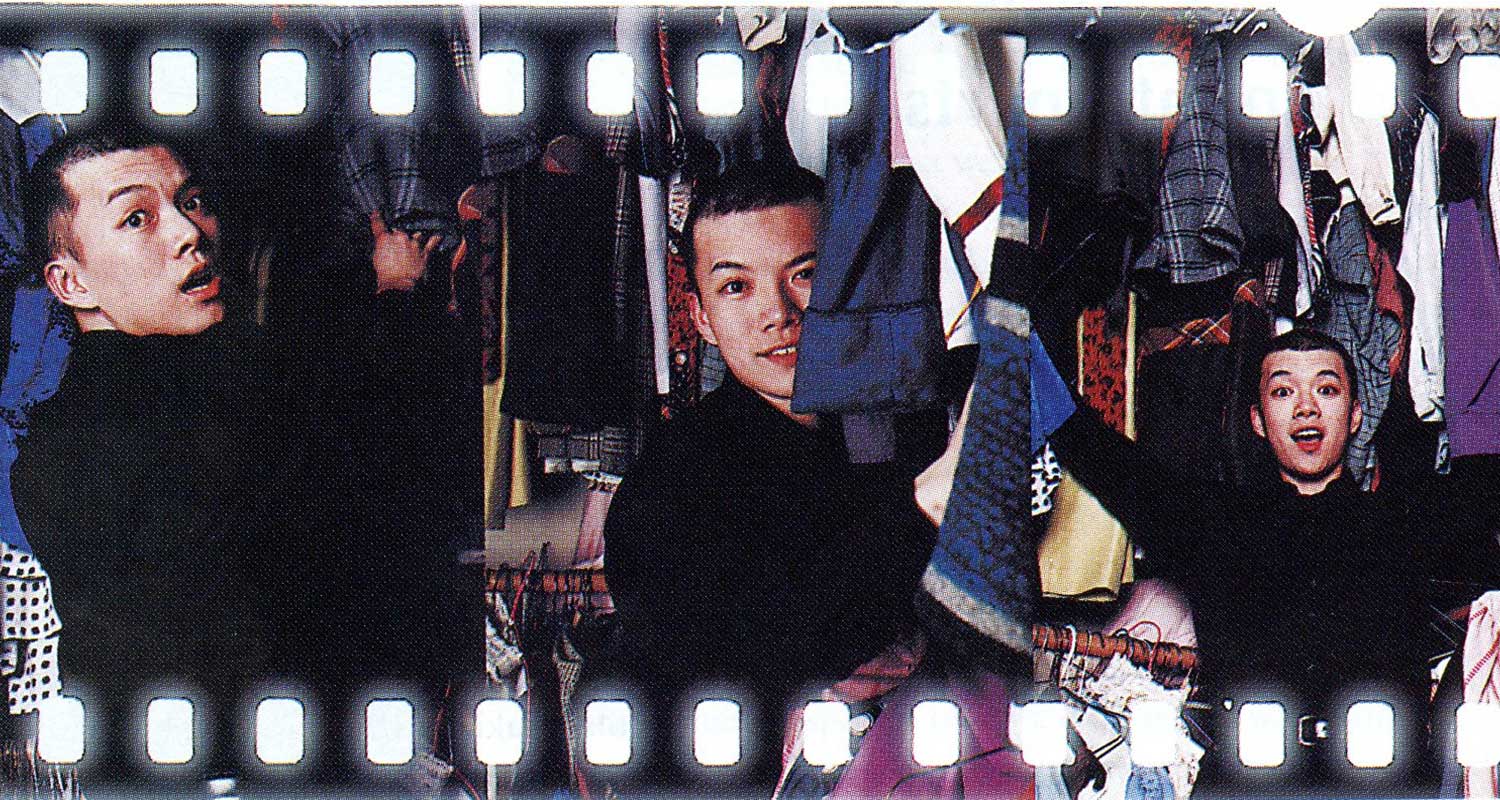In Zhang Yimou’s Raise The Red Lantern, star Gong Li conveys the most profound isolation and despair with the slightest of gestures. In John Woo’s 1987 Hong Kong classic, The Killer, charismatic lead Chow Yun Fat shoots once and, inexplicably, two men fall to the ground. This contrast is typical of Chinese films. If Hollywood has its way, North American audiences will soon be exposed to much more of it.
China and Taiwan produce some of the most elegant arthouse films in the world. From Eat Drink Man Woman to Shanghai Triad, these are the Asian movies generally most known to Western viewers. Hong Kong has the world’s third largest film industry (after the U.S. and India) and pumps out over 200 releases a year-most, but certainly not all, violent, fantastic, and often comic.
These thematic and stylistic polarizations of Chinese cinema tend to run along linguistic lines. Fast, stylish, explicit, utterly urban and often deliciously unsubtle, Cantonese films tend to reflect their origins in one of the most frenetic cities on earth. In contrast, films in Mandarin (especially those from China) tend to be more controlled, refined and allusive. The best mainland scripts obviously take months and months to write; many of the best Hong Kong scripts seem to have been composed minutes before someone said “roll-em.”
Mainland China
Two names dominate press coverage of cinema from the People’s Republic: actress Gong Li and director Zhang Yimou. The main reason is that two of their films have been nominated for Academy Awards: 1990’s Ju Dou and 1991’s Raise The Red Lantern.
Zhang Yimou
By birth Zhang was politically suspect: his father was a Kuomintang officer. Indeed, Zhang’s first work after graduation from the Beijing Film Academy, as a photographer for One and the Eight, was also his first project to be censored. His next project, as cinematographer to the brilliant director Chen Kaige’s Yellow Earth, however, did escape the censors, undoubtedly because of its sympathetic treatment of the Communists in pre-revolutionary China. This 1984 project, moreover, brought a new wave of modern Chinese film-makers to world attention.
The simple and moving story of Yellow Earth involves a Red Army soldier who comes to Shaanxi to collect peasant songs for the troops to sing. A young girl with a beautiful voice yearns for the soldier to help her escape the claustrophobic confines of the village. Because he does not take her away with him, she withholds the song that he wants most to learn.
Zhang’s shots of people dwarfed by the huge expanse of northern China sky perfectly suggest the village girl’s silent suffering over her thwarted dream of a life outside the confines of traditional gender roles. Yellow Earth remains one of the most moving and visually striking Chinese films.
Zhang’s first directorial effort, Red Sorghum, came in 1988. The film begins with a close-up shot of Gong Li’s face. From this moment on, the careers of the two were linked. Their next two films, Ju Dou and Raise the Red Lantern, were denied release in China: both stories’ subtextual affirmations of individual desire could easily be read as political allegories.
In the immediate aftermath of Tiananmen Square, the Communists were taking no chances. In many respects, Zhang then became truly an international film-maker-his films have since routinely opened everywhere but China.
The last film to be banned was 1994’s To Live. This is Zhang at his best and Chinese cinema at its most expansive. Covering roughly four decades of Chinese history, it is a story of the triumph of the will to live. Comic actor Ge You plays a character who fights on both sides in the Civil War, is then plunged into the horrors of the Cultural Revolution and survives each simply because he is irrepressible. In the words of one critic, “he busies himself with the living.” The film is remarkable for its even-handedness: the depiction of the hope that accompanied the 1949 Revolution is honest, as is the fear and uncertainty in the face of a young Red Army soldier brutally humiliating a local doctor in the name of ideology. Here and elsewhere, even Zhang’s minor villains are nuanced. For the newcomer to Chinese film, there may be no better place to begin than this winner of the 1994 Cannes Grand Jury and Best Actor prizes.
Zhang and Gong’s most recent effort together, 1995’s Shanghai Triad, is in release in North American video stores. It may well be their final collaboration: their eight-year romance came to an end during the filming. Gong’s first post-Zhang appearance to be found here is 1995’s Temptress Moon, directed by Zhang’s old friend Chen Kaige. Of these two, Triad is the far superior film. Expect, however, to see Gong Li in Hollywood soon.
HONG KONG
For a territory of only six million people, Hong Kong’s output of films is staggering. Many are terrible, but the best are informed with a vitality that has caused Hollywood to take notice and begin raiding the island.
Jackie Chan is poised to become a North American star more than 15 years after his first attempts to crack the U.S. market proved embarassingly ineffectual. Director John Woo has made two films in the U.S. since immigrating in 1992, and the inimitable actor Chow Yun-Fat is soon to grace North American screens in several big-budget efforts. Innovative director Wong Kar-Wai counts Quentin Tarantino as merely one of his influential North American admirers.
Jackie Chan
Possibly the most famous actor on the planet, Jackie Chan is an animated mix of Buster Keaton, Bruce Lee and Fred Astaire. This combination, however, often confuses the Western movie-goer accustomed to comedy and action as separate genres.
Playing straight action characters in the 1970s, Chan was a flop. To escape the shadow of the recently deceased Bruce Lee, Chan thus single-handedly invented the modern action-slapstick genre. Chan’s plots are not just thin; they’re emaciated. This, however, misses the point. Plot in a Chan movie is a minor device which exists only to provide a pretext for an oddly graceful mayhem in action sequences that dozens of critics have compared to ballets.
Western audiences that don’t care to remember ill-conceived early-1980s efforts such as The Big Brawl and The Cannonball Run generally know Chan only from his single North American success, 1996’s shot-in-Vancouver Rumble in the Bronx. Energetic and thoroughly campy, it showcases the ordinary-man-in-extraordinary-situation theme that forms a staple of the Chan oeuvre.
No discussion of Hong Kong film is complete without considering Chow Yun Fat, the man who more than anything else gives it its identity.
Rumble in the Bronx, is not, however, Chan’s best film: it was his first major North American release simply because its distributors thought the setting would make it more accessible to local audiences. Rumble’s success has led to Miramax picking up Drunken Master II, a far superior film. Drunken boxing is a serious martial arts form in which the fighter affects the lax posture and gestures of the inebriated. In the movie, this fighting style is in fact aided by the liberal consumption of alcohol. If this sounds like an odd plot, it’s because it is an odd plot. But it works and proves incontrovertibly that the comedic genius of Buster Keaton has been reborn in the most natural entertainer in Asia.
Chow Yun-Fat
No discussion of Hong Kong film is complete without considering Chow Yun-Fat, the man who more than anyone else gives it its identity. Certainly the most stylish actor on the planet, Chow is still only a cult figure in North America. This, however, should soon change: expect to see him on local screens late this year. Audiences here are in for a treat.
The Los Angeles Times noted, “His hands reinvent cool more often in a day than Wynton Marsalis has in a decade.” Indeed, Chow’s breakthrough performance in John Woo’s 1986 A Better Tomorrow, an honour-among-thieves epic, ignited one of Hong Kong’s oddest fashion crazes: heavy trench coats (considering the climate, not the most practical sartorial choice).
Out of the more than 70 films Chow has made in Hong Kong, three arguably show him at his best: The Killer, Hardboiled, and The God of Gamblers. The Killer, in fact, has acquired something of a cult following in North America since its 1989 release. Apart from the anyone’s-guess body count, what immediately impresses the viewer is how striking a figure the lead is. Chow dominates every shot he’s in. Woo’s camera is in love with him.
Those renting the film on video are, however, advised that there are two separate North American releases-one dubbed, one subtitled. As is often the case with Hong Kong films, the dubbed version is atrocious.
In fact, this cinematic butchery turns a brooding drama into an unintentionally very funny movie. True Hong Kong cinephiles own both copies. Regardless of the version, however, Chow Yun-Fat’s presence is undeniable. But will that presence translate into a North American context?
Hollywood is only too willing to gamble on the god of gamblers. Upcoming for Chow is the release of Replacement Killer by Columbia Pictures. Chow will play a Chinese assassin who attempts to prevent a hit he was originally hired to make. Considering his Hong Kong roles, it shouldn’t be a stretch. Later this year, he is to film X-LA, a science fiction movie, then reunite with John Woo in The Corrupter, yet another cops-and-robbers tale. Chow’s salary for the three films: $15 million US. Finally, he is to star in a spin-off of The King and I for Fox.
Wong Kar-Wai
There is perhaps no more liminal a figure in Hong Kong cinema than Wong Kar-Wai. He is certainly one of the most imitated of the new directors, provoking both homages and parodies. His style is instantly recognizable: the grainy and often jerky hand-held shots combined with fast and quirky editing contrast sharply with Zhang’s langour or even John Woo’s kinetic camera work.
By far the artiest of the Hong Kong directors, Wong has, perhaps predictably, an equal number of passionate admirers and fierce critics in the world’s most bottom-line-oriented cinema. When his Chung King Express picked up the Best Film, Actor, Director, and Editing Awards at the 1994 Hong Kong Film Awards (and his Ashes of Time won several of the remaining ones), admirers rejoiced at the valorization of a contemplative and challenging work while critics scratched their heads over the success of a glib piece of hip, semi-romantic fluff.
North American audiences can now judge for themselves: Quentin Tarantino’s distribution company, Rolling Thunder, has released it domestically. Other videos should soon follow. (Some Wong Kar-Wai releases are currently available as imports-if you look hard. These include Ashes of Time and 1995’s Days of Being Wild.)
His hands reinvent cool more often in the day than Wynton Marsalis has in a decade.
Chung King Express is a seemingly plot-light film whose narrative is ironically very difficult to summarize fully. In its most skeletal form, however, the movie is the story of two lovesick cops (identified only by badge numbers: 223 and 663) who experience brief moments of love and much longer moments of heartache. The film explores the beauty of transient connections in a disconnected existence.
With a booming soundtrack, abrupt but sharp editing, jerky hand-held camerawork, and stop-motion photography (in which individual frames are cut out of the film sequence), the film utilizes all of the tools of the post-MTV filmic vocabulary. Often, in fact, Wong’s idiosyncratic visual style is where critics tend to center their attacks.
Chung King is not, however, a case of style over substance. Wong’s approach underpins a complex meditation on time and identity in a city in which history has made both profoundly uncertain. Paradoxically, Wong’s editing severely dislocates all sense of time even while time itself is constantly foregrounded by characters, camera and other elements. As many have pointed out, Hong Kong is a disappearing city. For this reason, a highly stylized treatment of time is always central in Wong’s films.
Perhaps, then, with Hong Kong only weeks away from its return to Chinese control, Chung King Express is the appropriate elegy for the end of an epoch.





